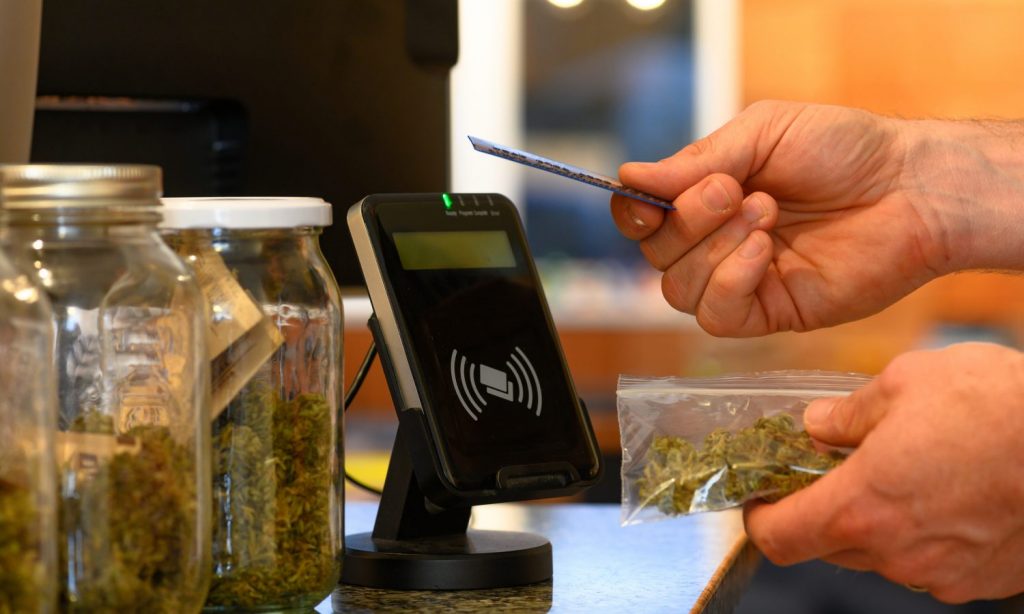
By Michael Sassano
Multi-State Operators (MSOs) in the United States are primed for the next big stock amp-up, which could see at minimum a 50% move starting as early as late August even without federal legislative movement. As volumes start to pick up this July, U.S. stocks don’t need a special event to bounce off this latest correction.
Cannabis is a Consistent Performer
Cannabis is rapidly closing the revenue gap outpacing such landmark institutions as the National Football League — and there is still an estimated $66 billion U.S. legacy market still to replace. Even more compelling is the emergence of profitability that is coming after the massive infrastructure spending that started in 2018 and 2019. While summers have always presented lower volumes of movement for small caps, the trading indexes are showing favorable valuations through the end of the season, despite the to-be-expected typical federal legislative gridlock on the horizon.

Even without federal rule enactment of legislation like the SAFE Banking Act, U.S. cannabis revenues increased astronomically from $1.9 billion in 2014 to $17.5 billion in 2020, beating expectations yet again. Forbes recently predicted that by 2025 the U.S. market will reach $43 billion — which only a few months ago was predicted to reach $29 billion. A flurry of newly legalized states (and more to come) all but ensure we will most likely see another stellar year in 2021, and an even larger increase in 2022. And with more demographics like seniors opening up to cannabis therapies, the industry is growing more robust with legalization sweeping through the remaining hold-out states.
Cannabis is Creeping up the U.S. Marijuana Index
Compare the above mentioned revenue growth and increased growth predictions to the U.S. Marijuana Index and you will see a typical over-optimistic yearly run. The index started in January 2015 and was trading at 115 which is above where we are trading today, around 110. By February 2016 that index dropped to 23 which is exactly where the second-biggest drop bottomed in March of 2020. In that period from February 2016 to March 2020, we saw two peaks of 101 in late October 2016 and another peak of 134 in April 2019 followed by a record high in February 2021 of 145. The next run will crack the 145 ceiling established this year and surpass it.
RELATED: Social Media’s Effect On Cannabis Stocks
The quality of companies operating now — plus the solid fundamental of a guaranteed, permanent U.S. cannabis market — is dramatically different from the landscape back in 2015. Profitability has emerged as a recurring theme in larger, more well-developed MSOs, while smaller companies have learned to be profitable by starving MSOs of capital markets. Of course, if the SAFE Banking Act or other measures occur to stimulate cannabis companies, that will turbocharge the financial environment, but it’s not vital for hitting a new high in cannabis stocks this year. Cannabis sales will keep increasing, companies will continue posting record numbers and profits, and new states will legalize until federal rules catch up to consumer preference.
Legislative Stagnation Can’t & Won’t Impede the Growth of the Cannabis Market
Mergers and Acquisitions (M&A) and infrastructure building are reaching the highest levels ever seen. And despite Canada’s woes, the U.S. and global capital markets are responding by beefing up their services for cannabis. The U.S. is receiving the largest benefit of private equity funding due to the massive revenue stream that is gaining momentum, but also the increased fundamentals of the companies. People are shunning the build and forget about the profitability model Canada’s federal legalization brought and realize cannabis is here to stay and best to invest in profitable operators. However, money and M&A are going to all companies big and small in the U.S. Even the Canadians are trying to buy into the U.S. market and picking up the scraps that U.S. MSOs are passing on. Expect M&A and infrastructure investment to only increase over the year.

Ideally, positive legislation will be taken on Capitol Hill to work toward building out the cannabis industry, but regardless of this term’s action, cannabis will continue making major gains. The political hubbub becomes mere background noise to the daily reality of a regular U.S. cannabis consumer. 100.9 million U.S. residents already live in a recreational state and 95% of residents live in a state with approved medical cannabis — so the consumer population is present and growing.
RELATED: Does Big Business Provide A Better Look Into Cannabis Reform Than Capitol Hill?
Moving into the fall, we will see disrupted supply chains return to full volume production in the market, and should be prepared for the next stock run somewhere around late August. Already cannabis brokerage houses are telling brokers to take time off now and be prepared for heavy activity in late August. The valuations you see today won’t be around again, and any surprise positive news from Washington DC will send stocks doubling where they are today.
Author Bio: Michael Sassano, the CEO of Somai Pharmaceuticals, a European company centered in pharmaceutical extraction, manufacturing and formulation of pharma-grade GMP-certified cannabinoid products throughout the European Union.
This article originally appeared on Benzinga and has been reposted with permission.






